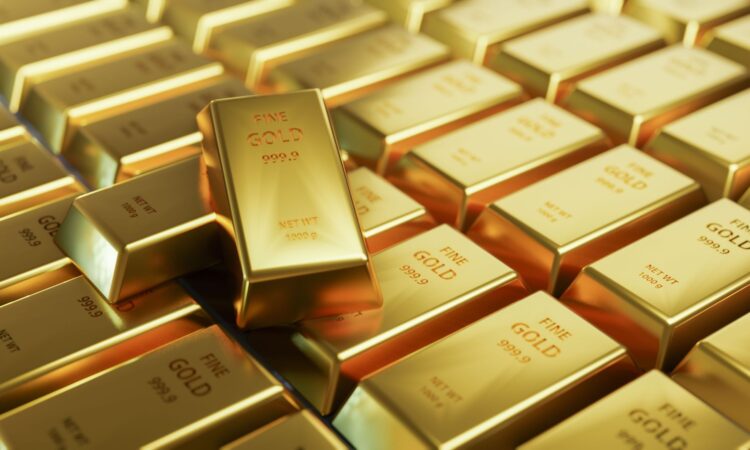Central bank gold purchases indicate revaluation plans, new monetary paradigm. Will the U.S. join it? – Middelkoop

(Kitco News) – An inexplicit but seemingly coordinated push by most of the world’s central banks to increase their gold holdings could mean revaluation is in the cards, and as the United States enters an election year, it also becomes the biggest wild card for the future of sovereign debt, national currencies, and the role of gold, according to Willem Middelkoop, Founder of the Commodity Discovery Fund.
Middelkoop wrote that the growing importance of gold in the world’s monetary framework represents “an unobtrusive yet profound shift” in global finance, with the main driver being “the diminishing trust in the US dollar following the freezing of Russian foreign exchange reserves post the Ukrainian invasion, compelling central banks to increase their gold reserves.”
He pointed to the spike in interest rates which led to substantial losses for bondholders, including commercial banks, asset managers, and central banks. “This erosion of value in government bonds, typically a cornerstone of central bank reserves, has forced European gold-holding central banks to consider utilizing their gold revaluation accounts to offset balance sheet losses, avoiding the need for government bailouts that could undermine central bank autonomy,” Middelkoop said. “However, this recourse to gold, dormant in reserves for decades, bears consequential implications. It could undermine confidence in national currencies, potentially triggering a shift from fiduciary currencies to gold among emerging market central banks.”
At the same time, central banks around the world are struggling with “unprecedented losses on their bond holdings,” which they accumulated during the quantitative easing period that followed the 2008 financial crisis. “This period of market support led to substantial asset accumulation, which, through measures like quantitative tightening, has dwindled,” he said. “The resultant losses on bond holdings, totaling hundreds of billions of dollars, have strained banks’ balance sheets, leading to collapses and market turmoil.”
Middelkoop pointed out that the gold accumulation trend by central banks is gaining momentum, “primarily driven by nations east of Germany” such as Poland, the Czech Republic, and Hungary, as a response to perceived currency debasement resulting from quantitative easing. “China and Russia notably reduced their US Treasury holdings, emphasizing gold as a safer reserve asset amidst Western sanctions,” he wrote. “This shift towards gold has also been observed in emerging economies like Brazil, India, and South Africa.”
“Central banks, recognizing the revaluation potential of gold, view their gold revaluation accounts as a means to shore up balance sheets,” he said. “However, the use of these reserves remains more psychological than formal due to technical and accounting intricacies.”
Middelkoop said that as so many of the central banks in both the developing and developed world accumulate gold and prepare themselves to at least be in a position to revalue their gold holdings, the question now becomes whether the United States, the world’s number-one gold-holder and issuer of the world’s dominant reserve currency, would also consider revaluation.
“Such a move would mark another pivotal stride in gold’s reemergence onto the monetary stage,” concluded Middelkoop. “International market observers and central bankers are keenly attuned to potential developments, particularly post a looming presidential election, that could further cement gold’s role in the global financial landscape.”
Disclaimer: The views expressed in this article are those of the author and may not reflect those of Kitco Metals Inc. The author has made every effort to ensure accuracy of information provided; however, neither Kitco Metals Inc. nor the author can guarantee such accuracy. This article is strictly for informational purposes only. It is not a solicitation to make any exchange in commodities, securities or other financial instruments. Kitco Metals Inc. and the author of this article do not accept culpability for losses and/ or damages arising from the use of this publication.




